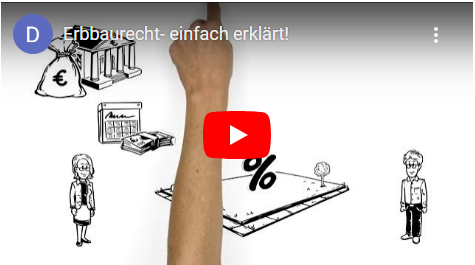Leasehold
In the city of Bocholt, plots of land are also allocated as part of a heritable building right.
"Normally" the land also includes the building on it. With heritable building rights, a distinction is made between ownership of the land and ownership of the building.
A leasehold is the right to erect a building on a plot of land and to use it for a certain period of time. The leaseholder remains the owner of the land and the leaseholder becomes the owner of the building/residential building.
Legally, the leasehold is treated like a plot of land. The leasehold is therefore a so-called right equivalent to real property. A separate land register sheet is created for each heritable building right. This results in two land registers (land and heritable building right). A heritable building right can be sold and bequeathed. The leasehold is established by a notarised contract between the leaseholder and the leaseholder.
In principle, any landowner can grant a leasehold. However, the largest providers of leaseholds include local authorities, churches and foundations. Just like a plot of land, the leasehold can be used as collateral to finance a property loan.
Important contents of a leasehold contract:
- Designation of the property
- Term/ground rent: As a rule, a leasehold contract for residential property runs for between 65 and 99 years. Other terms are possible. The ground rent is based on the value of the property. Calculation example: Land value: €220.00/m², ground rent: 3%, size of the property: 400 m² = 400 m² x €220.00/m² = €88,000.00 x 3% = €2,640.00 ground rent per year or €220.00 per month.
- Value protection: The ground rent is value-protected due to its long term.
- Costs: As a rule, the leaseholder bears all public and private costs (e.g. property tax, rubbish charges, development costs, building insurance)
- Intended use: e.g. residential
- Consent requirements: e.g. for sale or mortgaging
- Reversion: regulations for the forced return of the building
- End of contract/compensation: The contract is usually extended after expiry, otherwise compensation must be agreed
- Other: e.g. right of first refusal on the land or building, building obligations, maintenance obligations, insurance obligation





